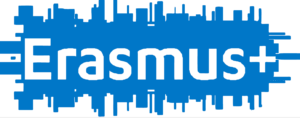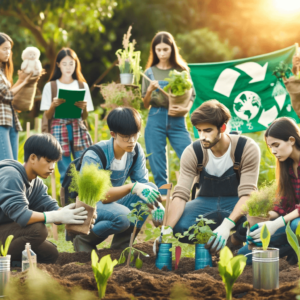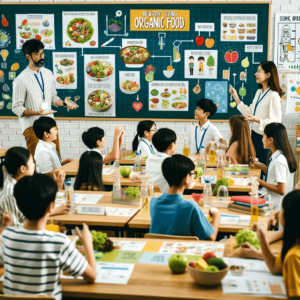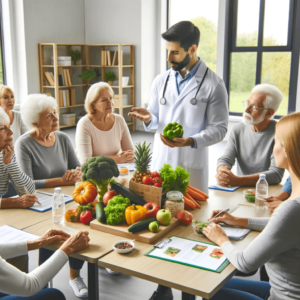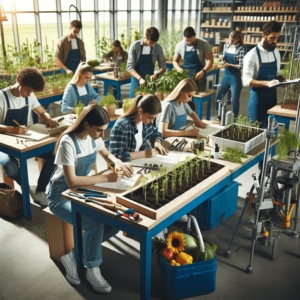Other cooperation under Erassmus
Nelkoski Organic Food, with its expertise in organic food production and sustainable practices, can contribute significantly to various Erasmus+ partnerships across different education sectors. Here’s a brief outline of potential contributions for each sector:
Higher Education (KA210 and KA220 projects)
- Research and Development: Leveraging expertise in sustainable agriculture and food production techniques.
- Sustainability and Circular Economy: Contributing to the development of courses and research in sustainable and circular economic models.
- Food Control: Providing knowledge in organic food quality control and safety standards.
- Development of New Materials for Plant Fertilization: Offering insights into organic and eco-friendly fertilization methods.
- Zero Waste Practices: Sharing knowledge and practices in reducing waste in food production and processing.
Adult Education (KA210 and KA220 projects)
- Active Aging Programs: Developing initiatives for active living and aging, focusing on organic nutrition and wellness.
- Reintegration into the Workforce: Offering courses and training sessions for adults re-entering the job market, with a focus on sustainable agriculture and organic food production.
- Sustainable Lifestyle Education: Educating adults in sustainable living practices and the importance of organic food consumption.
Vocational Education and Training (VET) (KA210 and KA220 projects)
- Specific Training for Employability: Providing training in skills related to organic farming, sustainable food production, and green business practices.
- Green Companies and Jobs: Offering insights into the creation and operation of eco-friendly businesses in the food sector.
- Agro-Development and Food Production: Sharing knowledge on organic agriculture techniques and sustainable food processing methods.
School Education (KA210 and KA220 projects)
- Healthy Living Education: Implementing programs in schools to teach students about organic foods, nutrition, and sustainable living.
- Best Practices in General Education: Sharing innovative teaching methods and educational materials related to organic farming and sustainability.
- School Projects and Training: Collaborating on school projects that focus on environmental awareness, organic farming, and sustainability.
Youth Projects (KA210 and KA220 for Youth)
- Non-Formal Learning Initiatives: Participating in projects that offer young people non-formal education opportunities in organic farming, sustainability, and eco-friendly practices.
- Active Youth Projects: Engaging in activities that promote active participation among youth in environmental conservation and sustainable living.
- Youth Empowerment in Sustainability: Developing programs that empower young people to take an active role in sustainable community development and organic food production.
- PIC: 889465072
- Organizational Number: E10280729
- Registration Number: 7270461
- Tax Number: 4026018528480
